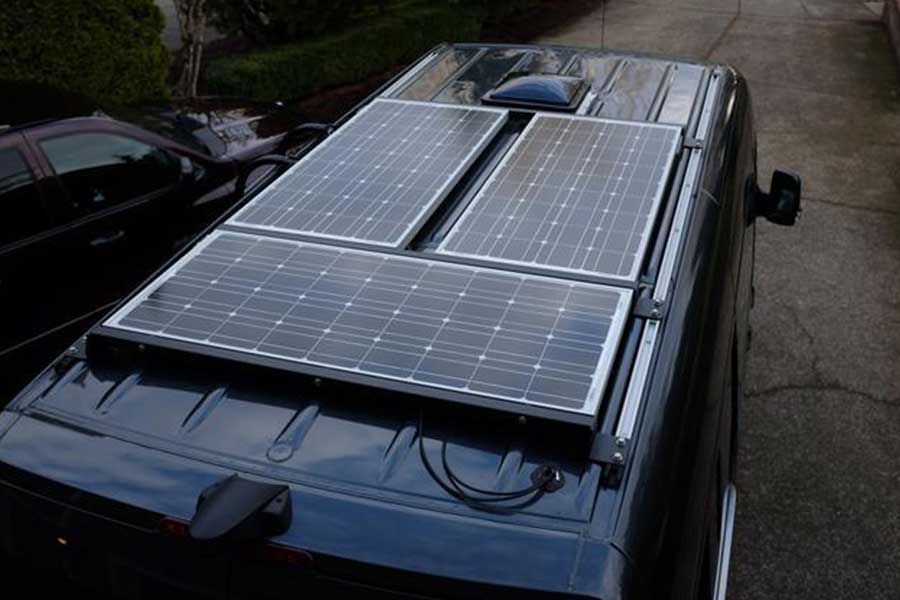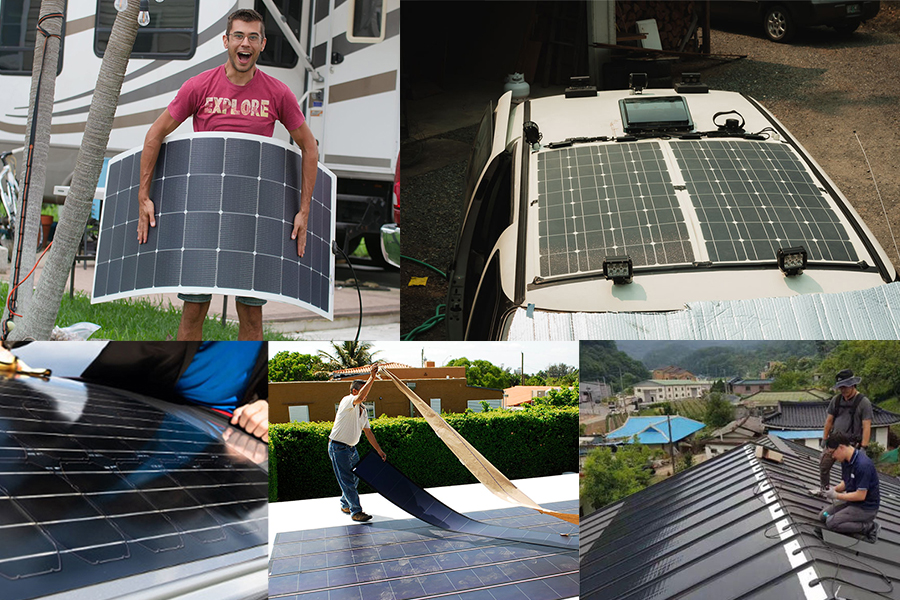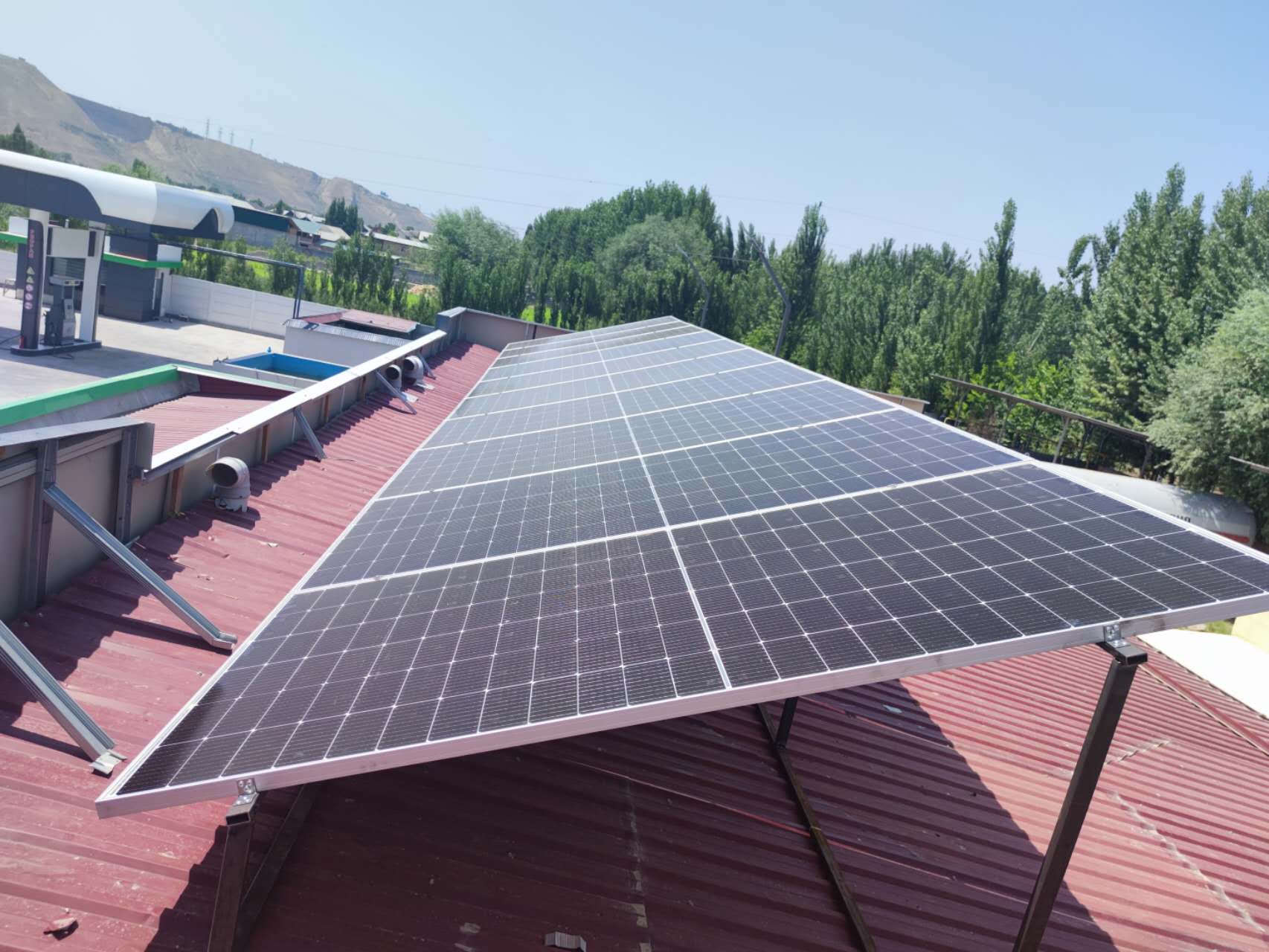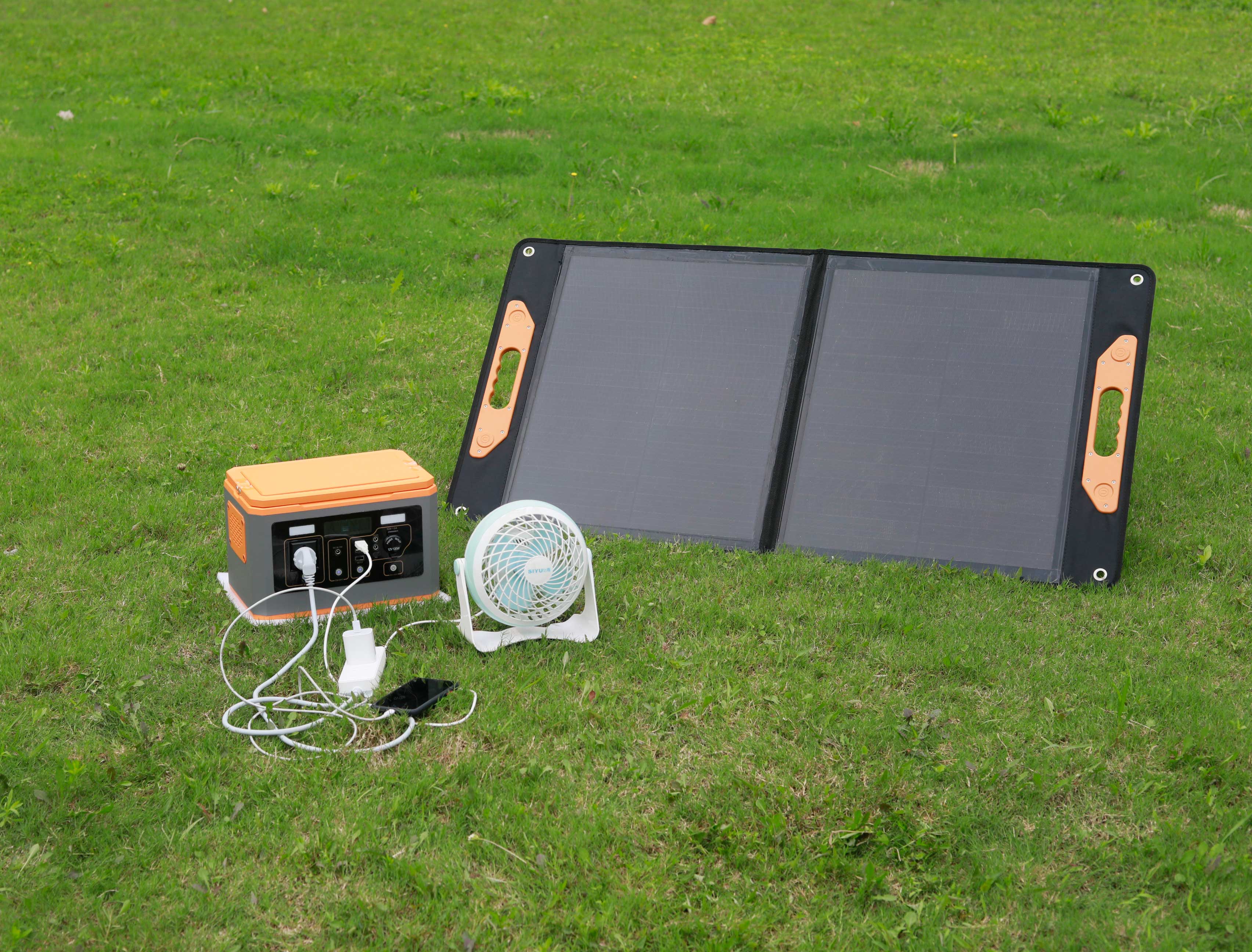The sun not only sustains life on Earth but continually provides a tremendous amount of energy. Can we harness this energy and convert it into electricity to power our appliances? The answer is a resounding yes! To achieve this, we need to use solar panels.
Solar panels are devices that directly or indirectly convert solar radiation into electricity through the photovoltaic effect or the photochemical effect by absorbing sunlight. With solar panels, we can provide clean and quiet power for our RV. They start charging the batteries whenever the sun is shining.
Next, we will discuss the types of RV solar panels, their optimal installation locations, and their power ratings.
When choosing solar panels, keep in mind some key factors:
-
Monocrystalline, polycrystalline, or amorphous
-
Rigid or flexible
-
Fixed or portable
1. Types of Solar Panels
Solar panels come primarily in monocrystalline, polycrystalline, and amorphous varieties.
Monocrystalline panels are space-efficient but often more expensive.
Polycrystalline panels are more affordable and have larger per-watt dimensions. They have similar lifespans and durability as monocrystalline panels.
Amorphous panels are quite different from the other two. They are less efficient, heavier, and more expensive. However, they perform better on cloudy days and are less affected by partial shading. Even when flexible, they are quite durable, which is why you often see them sewn into backpacks and fabrics.
For RVs with limited roof space, monocrystalline panels are the best choice due to their minimal footprint.
2. Rigid Solar Panels
Rigid solar panels are solar cells mounted on glass within an aluminum frame. They come in various sizes and are often installed in outdoor-friendly aluminum frames. They are designed to withstand hail, dust, and strong winds. The glass surface is scratch-resistant and suitable for long-term use.
Features of rigid solar panels:
- A wide size range
- Cost-effective per watt
- Durable, typically with long warranties (over 10 years)
- Easier to orient towards the sun due to their sturdy frames
Rigid solar panels offer the best performance and durability.
3. Flexible Solar Panels
Flexible solar panels are flat panels with a protective plastic covering. They lack frames, making them compact and suitable for bending to match the contour of your RV’s roof. They are also lightweight. However, their soft plastic surface is susceptible to scratches, and they can handle less impact.
Over-flexing can lead to internal connections breaking or even short circuits between solar cells. Due to these issues, the warranty period for flexible panels is usually shorter than for rigid panels.
Features of flexible solar panels:
- Thin and lightweight
- Bendable to about 30°
- Prone to scratches
- Shorter lifespan
Flexible panels are suitable for areas with significant curvature, but for flat surfaces, rigid panels are recommended.
4. Solar Panel Placement
For larger RVs, solar panels can be permanently mounted on the roof. This is the simplest option. However, in some cases, you may also use portable solar panels or solar generators to provide additional power or charge small electronic devices.
Fixed solar panels are permanently installed on the roof of the RV. You can add tilt mounts to manually adjust the angle for optimum energy generation.
When installing solar panels, keep in mind that they perform best at lower temperatures. It’s ideal to leave a small gap between the panel and the roof to allow air circulation, reducing the panel’s temperature. Directly adhering the panel to the roof can cause overheating.
Fixed panels’ advantages:
- They start collecting energy as long as the sun is out.
- They don’t take up valuable interior space.
- They are less susceptible to theft.
- Better suited for those with high power requirements (above 200W).
- Can provide shade for the vehicle, helping reduce heat.
Fixed panels’ disadvantages:
- Difficult to achieve the optimal sun angle.
- Significant installation effort.
- Increases the vehicle’s roof height and aerodynamic resistance.
- Limits roof layout choices and may hinder air conditioner installation.
- Requires parking in the sun to get power, which can be challenging during hot summers.
2) Portable Solar Panels
Portable solar panels and solar generators are more lightweight and can be stored inside the RV. They are a great choice for charging your phone or laptop while camping.
Advantages of portable panels:
- Easier and more affordable for those without the capability to install fixed panels.
- Can be adjusted to face the sun for maximum exposure.
- Suitable for various vehicles (small cars, SUVs, etc.).
- Can generate power even when the vehicle is parked in the shade.
Disadvantages of portable panels:
- Requires setup each time you camp.
- Occupies interior space, especially for panels above 200W.
- Cannot charge while driving.
- Less practical for urban use.
5. Making Your Solar Panels More Efficient
1. Weather Conditions
One of the biggest concerns with using solar panels is weather. Cloudy or rainy days significantly reduce your power generation.
Regularly cleaning your panels is essential. Dust and debris can hinder their efficiency. Ensure to check your solar panels for dirt and leaves weekly.
2. Angle of Solar Panels
A 100W solar panel’s rating is achieved under specific laboratory conditions, so in real outdoor settings, you may only get around 60W of power due to variations in sun angle. Installing a tilting bracket for rigid solar panels can increase your energy production by 20%.
3. Shade
Another crucial aspect of solar panels is that they are highly sensitive to shading. Each small section of the panel is connected in a specific way, so if one part is shaded, it can affect the entire row, potentially reducing power production by up to 90%.
Therefore, the positioning of your solar panels is critical, and you should consider these factors when planning your roof layout. If roof racks, exhaust fans, or storage boxes obstruct the panels, it can significantly reduce energy production.
6. Conclusion
When choosing solar panels, you must consider multiple factors and select a product that suits your RV’s specific needs. If you have any doubts about this, please feel free to contact us, XCsolar expert team will provide you with free advice and design assistance!
Post time: Oct-30-2023





